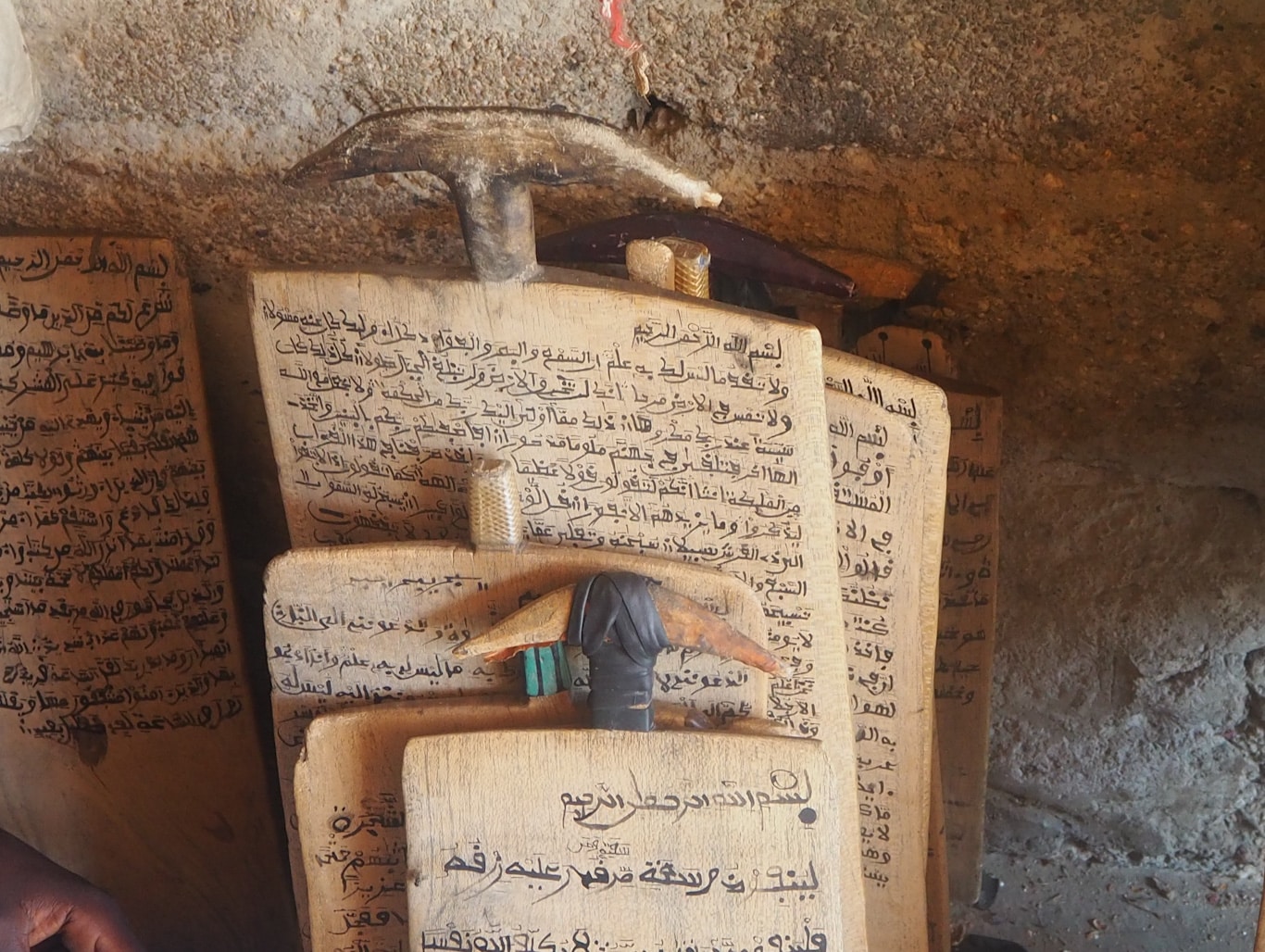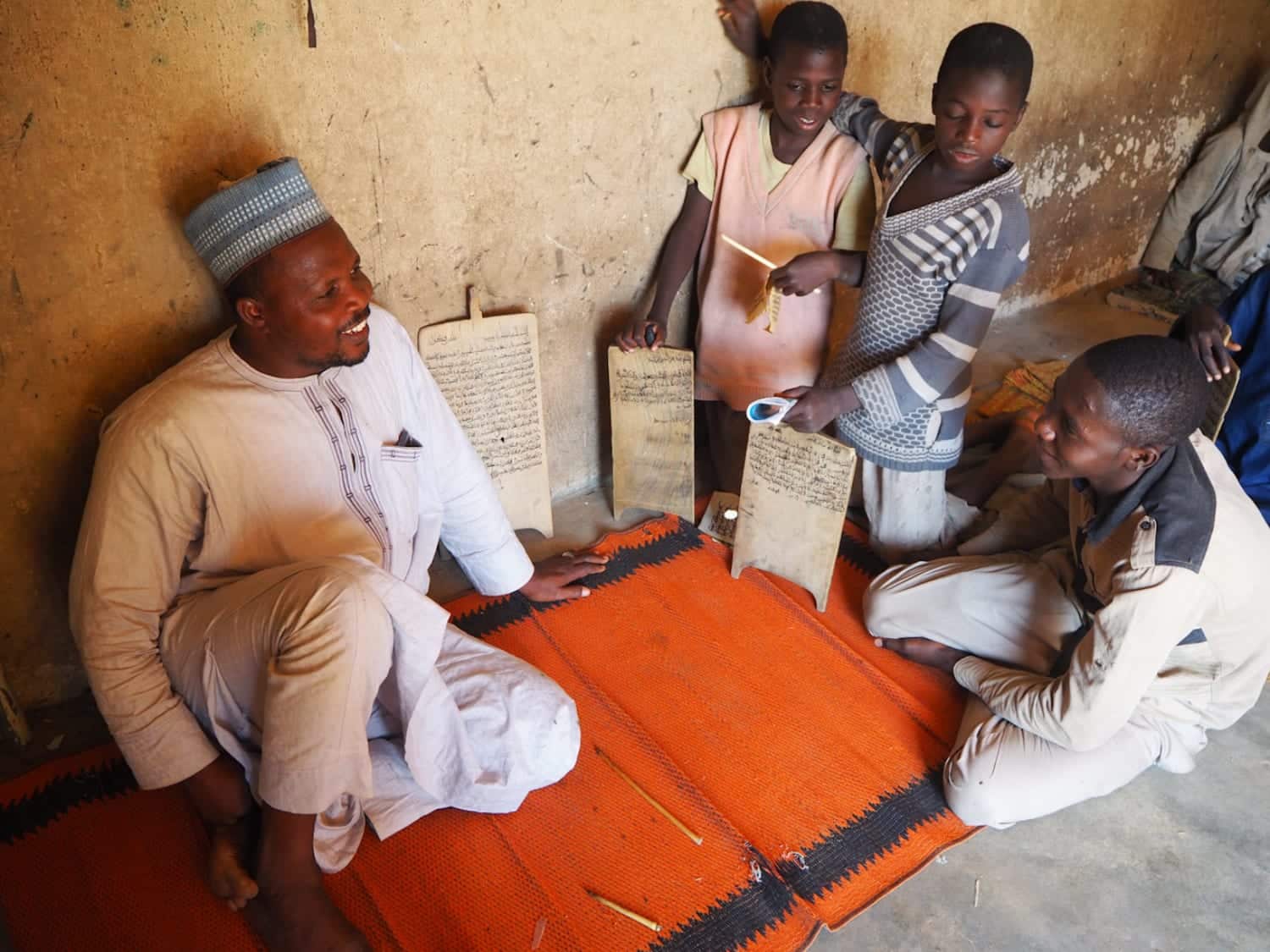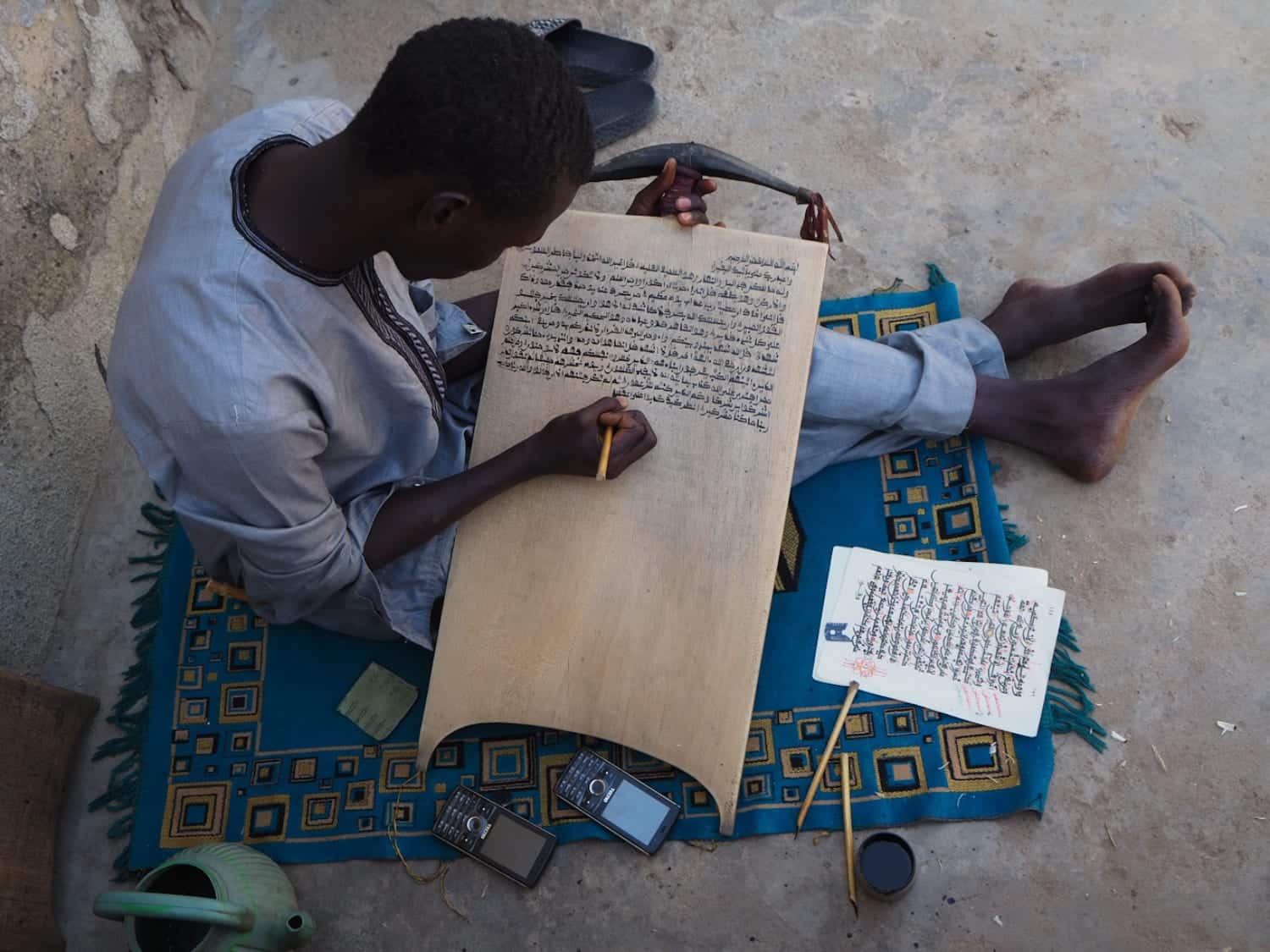

A Better Almajiri
Through the White Dove (Farar Tattabara) project, EAI produced "Ilimi Abin Nema," a weekly radio program for listeners across Northern Nigeria that examines youth education, especially the Tsangaya model, or traditional Koranic school system.

“Ilimi Abin Nema” (In Pursuit of Knowledge) is a 45-minute weekly radio program that serves audiences across northern Nigeria and is designed to consider the role of government and Islamic clergy in educating youth, with a particular focus on the Tsangaya model, or traditional Koranic school system.
One aspect of this programming has been to address the needs of over 10 million Almajari students within the Tsangaya system to receive broader academic instruction beyond Koranic studies. The purpose is to better build their resilience to violent extremist recruitment and prepare these students to enroll in formal public schools and/or have a vocational skill set when they leave the Tsangaya and enter the workforce.
In October 2019, Dr. Abdullahi Bappa Garkuwa from the World Bank sat down for an interview with Muhammad Adam (EAI’s radio host and producer of “Ilimi Abin Nema”) to discuss whether there had been any observable impact between the radio show and the increased focus by the Gombe State Government to improve the conditions for the Almajiri students in Gombe.
Before the launch of the show, there was very little public discussion on the need to improve the management, conditions, and curriculum of Tsangaya schools, as few dared to question this cultural tradition. However, “Ilim Abin Nema” has allowed audience members to hear from respected Islamic scholars about the importance of reforming these schools for the benefit of the students.
Dr. Garkuwa commented that prior to the launch of the show, there was very little public discussion on the need to improve the management, conditions, and curriculum of Tsangaya schools, as few dared to question this cultural tradition.
To date the Gombe State Government has identified and engaged with over 400 Tsangaya schools and has enrolled Almajiri students in formal education while also sending instructors into the Tsangaya schools to provide the remaining students with instruction in English, Mathematics, Physical Education and varied types of vocational training.
Similar reforms have been recorded in other states across Northern Nigeria, with hundreds of schools making changes that prevent youth from begging and strengthening the parent-child bond, proven to minimize engagement with violence later in life.
“Ilimi Abin Nema” and a network of Peace Promotion Fellows (PPFs) working on religious education have cultivated new solutions and social norms that prioritize and humanize Almajiris, prepare them for roles of full citizens through a better set of life skills, well-rounded education, healthy relationships, and opportunities to prevent their social exclusion and recruitment to criminal and violent groups.
“Ilimi Abin Nema” has allowed people to hear from respected Islamic scholars about the importance of reforming these schools for the benefit of the students. People are encouraged to speak out publicly on air, within their communities, and to their elected representatives about the need to enroll Almajiri students in formal education.

